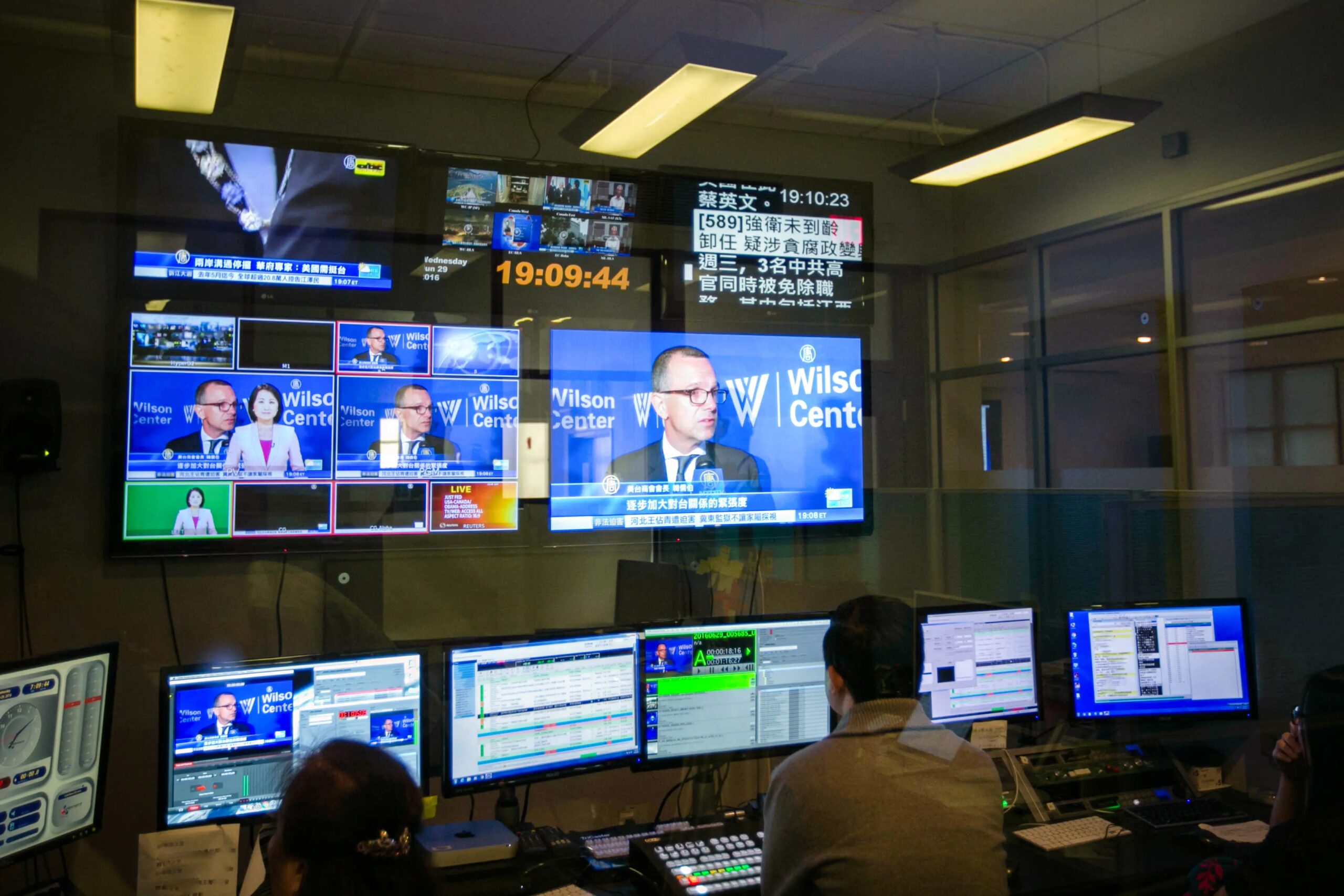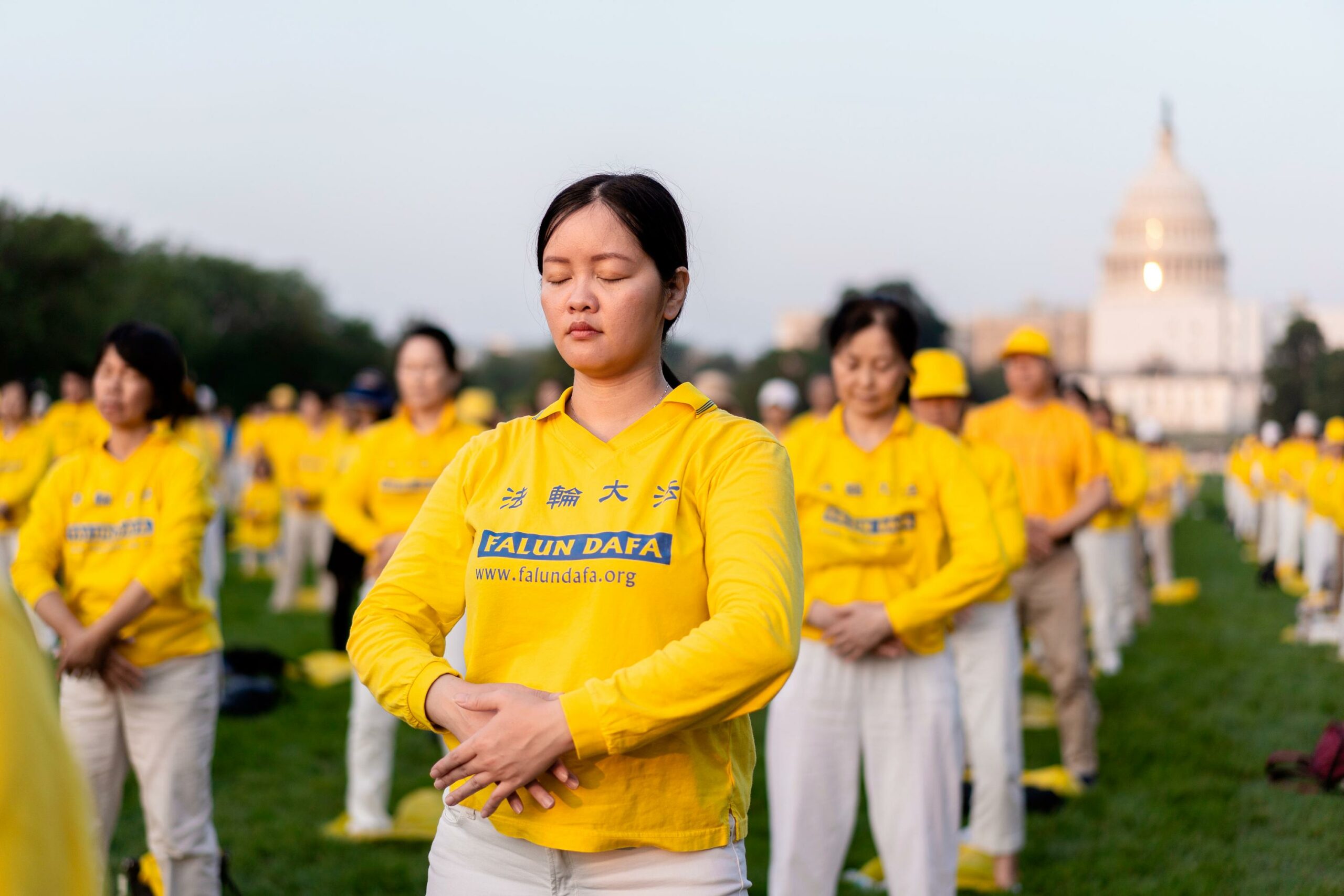We support our Publishers and Content Creators. You can view this story on their website by CLICKING HERE.
In October 2022, Chinese leader Xi Jinping held a secret meeting instructing top state officials—overseeing political, intelligence, and influence operations—on a new strategy to target the Falun Gong religious group internationally, The Epoch Times has learned.
At the core of the Chinese Communist Party (CCP)’s new anti-Falun Gong strategy is launching disinformation campaigns via social media influencers and Western media outlets; and using the American legal system to go after companies started by Falun Gong practitioners.
Details of the 2022 secret meeting were provided by Yuan Hongbing, a Chinese legal scholar living in exile in Australia who has maintained connections within China’s top political circles. His account is based on information he received from two sources: an individual from a veteran CCP family, who now opposes Xi; and from an insider with knowledge speaking out for reasons of conscience.
The meeting took place right before the 20th National Congress, which saw Xi secure an unprecedented third term as Party leader. Xi told officials at the meeting that the regime’s previous efforts to suppress Falun Gong overseas had essentially failed.
‘Dire Situation,’ Says Xi
The meeting was held by the Political and Legal Affairs Commission and was attended by the ministers of National Security and State Security, the secretary and several deputy secretaries of the Political and Legal Affairs Commission, officials from the Ministry of Foreign Affairs, and from the United Work Front Department, the key Chinese agency tasked with overseas influence operations, according to Yuan.
Yuan said one of the main reasons Xi deemed international efforts against Falun Gong to be a failure was the growth of media organizations started by Falun Gong practitioners, which Xi says have become the main “hostile force” against the CCP, not just in Chinese but also in English.
Media founded by Falun Gong practitioners include The Epoch Times and New Tang Dynasty Television (NTD), which were started in the early 2000s initially in Chinese and now in many languages with branches across the world.

A television station control room of the NTD Television Network, one of the media outlets targeted by the CCP, at its headquarters in New York City, in a file photo. The Epoch Times
Xi said that despite years of expending large amounts of manpower, material resources, and money, the CCP has not only failed to suppress these media, but instead let them grow into a leading counterforce to the CCP internationally and in the media industry.
The CCP leader described the situation as “dire,” and said it was a major oversight of the responsible officials.
Xi believes the failure stems in part from a lack of “strategic planning” and “thorough, forceful coordination,” according to Yuan.
On top of that, Xi considered the existing suppression tactics as too “reserved, conservative, and not creative enough;” and while the country has poured a significant amount of resources toward the effort, a large portion of that, upon disciplinary inspection, turned out to be wasted through corruption.
Xi told the attendees to start “cultivating anti-Falun Gong forces afresh” and reassess the current personnel designated to the task overseas, and to impose punishment or cut them off if necessary.
Shift in Strategy
“Infiltrate, break down, and dissolve”—these have been the strategies Chinese influence operatives have used against targets in the Chinese diaspora such as Falun Gong.
Xi said they were not sufficient.
Traditionally, the Chinese foreign ministry and the 610 Office—an extralegal apparatus specifically charged with the persecution work—had carried out the campaign overseas. Xi ordered a structural overhaul, according to Yuan.
Xi assigned the Central Political and Legal Affairs Commission, the overseer of all legal enforcement authorities, to coordinate the task both inside China and outside.
Under the commission’s oversight, the Ministry of Public Security, with its roughly 2 million law enforcement officers, was put in charge of persecution efforts in China.
The Ministry of State Security, China’s top spy agency, was tasked with attacking Falun Gong overseas, with the United Front Work Department, the CCP overseas influence operation arm, and the relevant department from the foreign ministry, playing a supporting role.
“To fight a snake, hit at the seventh inch,” Yuan’s source quoted Xi as saying. The phrase is a Chinese idiom meaning to strike where it hurts most.
Chinese legal expert Yuan Hongbing in a file photo. Chen Ming/The Epoch Times
Xi instructed officials to use lawfare and disinformation, deploying media with no traceable ties to the CCP, and social media to attack Falun Gong. He told them to direct their energy toward smearing Falun Gong’s founder, Li Hongzhi, and to discrediting Falun Gong-founded media through inside operatives.
The reason for relying on social media and Western media in its war of public opinion, is because Xi believes using CCP state media is not effective overseas because it comes across as propaganda.
The Western press has long been used in propaganda wars by communist countries.
“What the CCP is doing is precisely what the Soviets did in terms of trying to get their narrative, their propaganda into recognized Western newspapers, magazines, media outlets,” Ronald J. Rychlak, a distinguished professor of law at the University of Mississippi, and expert on disinformation, told The Epoch Times.
Casey Fleming, CEO of BlackOps Partners and a counterintelligence expert, says the CCP has been at this for decades and “they just become very, very good at it.” And that new technologies just allows them to scale up.
“Social media can be instantaneous worldwide to distribute a false message and to unseat people’s opinion and unseat our freedom in the United States in the free world,” Fleming told The Epoch Times.
A New Security Chief
Days after the Party Congress, the Ministry of State Security got a new leader, Chen Yixin.
Chen had previously been the mayor of Wuhan and later the secretary-general of the Central Political and Legal Affairs Commission. During his tenure at both posts the persecution increased against Falun Gong.
The whistleblower said Chen considers the issue his political capital and is aiming to “resolve the ‘Falun Gong issue’ by the end of the year.”

(Top) Two Chinese police officers arrest a Falun Dafa practitioner at Tiananmen Square in Beijing on Jan. 10, 2000. (Bottom) Falun Gong adherents take part in a candlelight vigil in memory of Falun Gong practitioners who died due to the Chinese Communist Party’s ongoing persecution, at the National Mall in Washington on July 20, 2023. Chien-Min Chung/AP Photo, Samira Bouaou/The Epoch Times
‘Systematic and Complete Plan’
The international campaign against Falun Gong and its affiliated groups has notably intensified over the past year.
Dozens of social media accounts sprung up specifically targeting Falun Gong and Shen Yun Performing Arts, a classical Chinese dance and music company founded by Falun Gong practitioners that depicts a traditional China as it existed before communism.
“I was the one who introduced people [ex-Shen Yun performers] to the New York Times, especially for the initial interviews. They found additional people through that,” he wrote on X following the publication of a New York Times hit piece on Shen Yun earlier this year.
The individual also bragged about filing complaints against Shen Yun with New York state authorities in order to generate legal action against the arts group. He encouraged others to do the same.
Last year, he was tracked by law enforcement near Shen Yun’s campus. The FBI issued a warning to local law enforcement describing him as “potentially armed and dangerous.” He now faces charges for possession of illegal firearms.

The performance, “Flowing Sleeves,” from the 2009 Shen Yun Performing Arts program. Shen Yun Performing Arts
The CCP also increased its efforts to target Shen Yun using the U.S. legal system.
The same two agents had traveled to Orange County, New York, where Shen Yun is based, to surveil Falun Gong practitioners and collect information that would serve as “the basis for a potential environmental lawsuit meant to inhibit the growth of the Falun Gong community in Orange County,” according to court filings.

A garden outside the South Gate of the Dragon Springs campus in Cuddebackville, N.Y., on Oct. 1, 2023. Cara Ding/The Epoch Times
Meanwhile, last week a Chinese national was sentenced for spying on Falun Gong in the United States.
Calls for Vigilance
The escalating transnational repression against Falun Gong has alarmed U.S. lawmakers, like Rep. Scott Perry (R-Pa.).
Other legislators expressed similar concerns about the CCP exporting its human rights abuses into America.
Rep. Michael McCaul (R-Texas), chairman of the House Foreign Affairs Committee, said he “strongly condemn[s] China’s latest series of attempts to commit human rights violations against pro-democracy group Falun Gong in the U.S. and abroad.”
“The CCP has a history of repressing pro-democracy groups beyond its borders as it seeks to strengthen its authoritarian grip on its own people,” he told The Epoch Times, adding that he commends U.S. law enforcement for “protecting democratic activists’ lives, civil liberties, and the rule of law.”
“For 25 years, the Chinese Communist Party has been persecuting Falun Gong practitioners and all who seek to practice their faith without government interference. Oppressive regimes like the CCP must be held accountable for attacking human rights through disinformation and persecution,” she told The Epoch Times.
To tackle covert Chinese operations, Rep. Jim Banks (R-Ind.), elected in November to the Senate, cited the Countering China’s Political Warfare Act he introduced. Congress needs to pass the bill to “sanction CCP groups like the United Front that are waging political warfare against U.S, citizens and Chinese dissidents on American soil,” he told The Epoch Times.
(Top Left) Rep. Scott Perry (R-Pa.) in the Rotunda of the U.S. Capitol in Washington on June 25, 2024. (Top Right) Rep. Michelle Steel (R-Calif.), in a file photo. (Bottom Left) Rep. Jim Banks (R-Ind.) on Capitol Hill on March 27, 2019. (Bottom Right) Rep. Michael McCaul (R-Texas), House Foreign Affairs Committee chairman, in Washington on Aug. 29, 2023. Madalina Vasiliu/The Epoch Times, Yiyuan Chang/NTD, York Du/NTD
Perry said given that the CCP is an adversary, the United States must be vigilant.
“We should have increased scrutiny on all their activities and with the mindset that they would do these things purposefully and when we find that to be the case, severe, strict and sudden consequences need to be imposed.”
Here he sees an opportunity to “send a stronger message” to the CCP and Xi Jinping.
“Closing consulates and other diplomatic means can be things that we would consider” if the regime wants to pursue this kind of policy, he said.
“The Communist Party of China is essentially a criminal organization running a country,” Perry said, adding that since the United States doesn’t allow criminal organizations to use government systems to persecute adversaries or violate basic human rights, “we certainly shouldn’t let the CCP do it either.”

 Conservative
Conservative  Search
Search Trending
Trending Current News
Current News 






